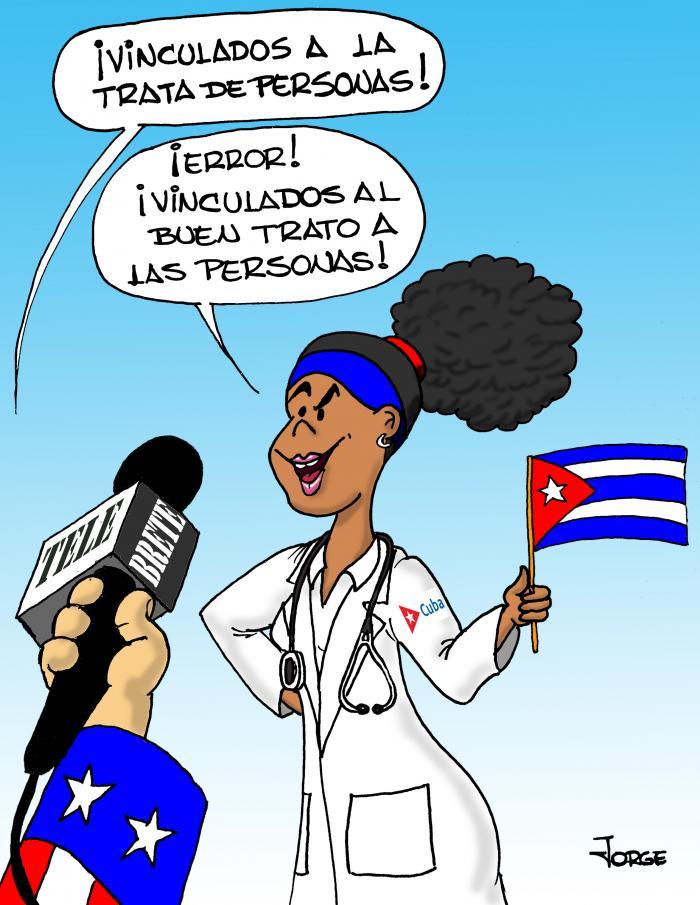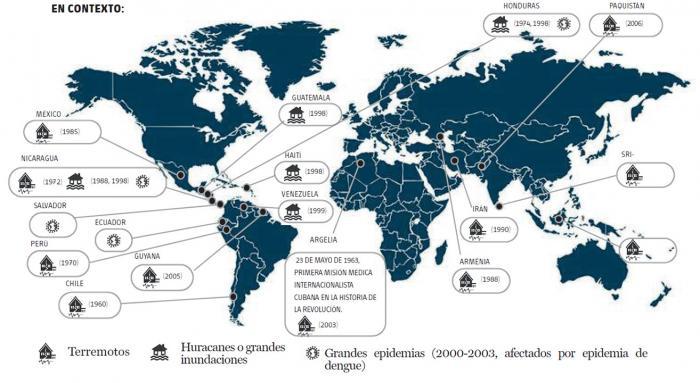
Cuban health care is a fundamental pillar of Cuba's foreign policy, extending to almost every corner of the world and distinguished by its profound humanism, dedication and commitment.
Over the decades, thousands of Cuban health professionals have provided support in disaster situations, health emergencies and various health programs, earning the recognition and respect of communities, governments and international institutions.
Since its inception, this initiative has been based on principles of solidarity and altruism, prioritizing the needs of the most vulnerable and offering quality medical care regardless of race, religion or ideology.
An exceptional vocation for service has led Cuban doctors, nurses and technicians to work in remote and difficult-to-access areas, facing challenges and overcoming obstacles with determination.
An emblematic example of this work is the Henry Reeve International Contingent of Doctors Specialized in Disaster Situations and Serious Epidemics, created in 2005 by Cuban Commander-in-Chief Fidel Castro Ruz.
Born after Hurricane Katrina hit the south of the United States, with the purpose of providing immediate and free assistance to the people of New Orleans, the aid was rejected by the government of George W. Bush; however, the contingent, initially composed of 10,000 doctors, multiplied into dozens of brigades.
It's work has been fundamental in the fight against Ebola in West Africa, the COVID-19 pandemic in several countries and other global health crises. For this he was nominated for the Nobel Peace Prize, and in 2017 the World Health Organization (WHO) awarded him the Lee Jong-wook Memorial Prize.
In addition, this contingent received the Solidarity Award-2016, presented by the Italian foundation Foedus; the Diploma de Honor del Legislativo, awarded by the Congress of the Republic of Peru in June 2017; the decoration Cruz de Comendador, awarded by the National Congress of Honduras; and the Democracia-2020 Award for Outstanding Latin American Personality, conferred in Argentina.
These recognitions are testimony to the positive impact this collaboration has had on the health and well-being of millions of people around the world.
However, this form of cooperation has also been the subject of slanderous campaigns of discredit, especially by the U.S. government. Washington has articulated a subversive program against this aid scheme, accusing it of being a form of exploitation and of violating the human rights of Cuban health professionals.
These accusations have been rejected by the Cuban government and by numerous personalities and world leaders, defenders of this mission all over the planet.
The members of these contingents are not motivated by selfishness or glory. With the triumph of the Cuban Revolution in 1959, substantial changes took place in all aspects of the country, strengthening values such as humanism, altruism, solidarity, heroism and internationalism.
These are the values that make it possible for thousands of doctors, technicians and nurses to feel proud of serving human beings in any place or situation, without any interest whatsoever.
Cuban health personnel have cared for more than 2.3 billion people, performed 17 million surgeries and assisted in the birth of five million children.
MILESTONES OF THE CUBAN HEALTH COLLABORATION:
1960-1963
Sending Medical Brigades to Chile and Algeria.
1998
Creation of the Integral Health Program for Central America.
2003
Beginning of the Barrio Adentro Mission.
2004
Start of Operation Miracle.
2014
Confronting Ebola in Africa.
2020
Brigades are sent to combat COVID-19.









